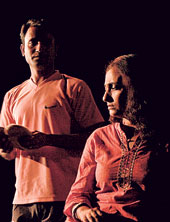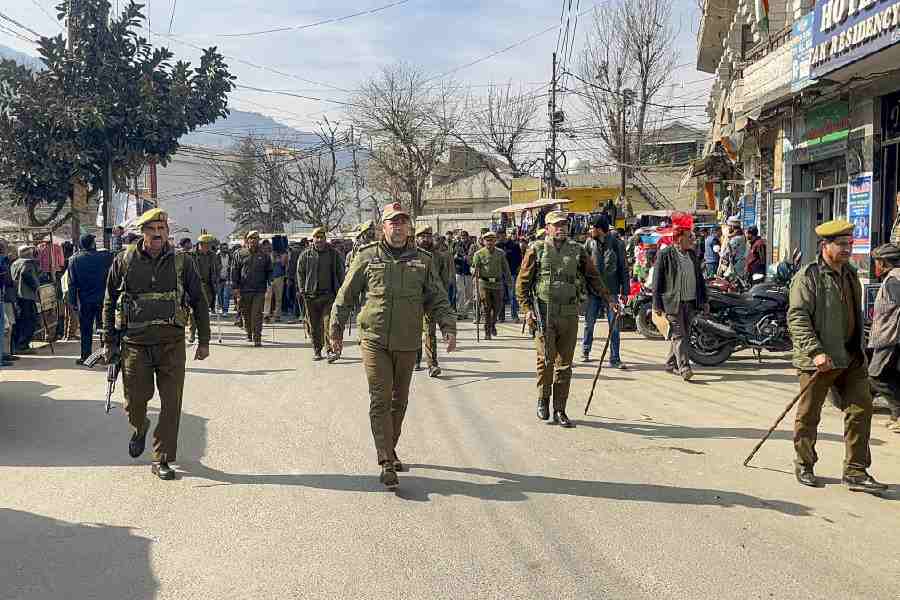 |
| Jhalapala’s play blends theatre and pata |
The time it seems is opportune for didactic political plays, especially ones that while favouring a change will keep supporters of all groups happy. No wonder we have two city groups doing Bengali versions of the same play.
Even as Aneek does Laal ghashe neel ghora, Nandipat is rehearsing for Srinantu Comrades, another translation of the Russian original, Blue horses on red grass, written by Mikhail Shatrov in 1977.
“It had been selected for production in 1990, and I had edited Somnath Mukhopadhyay’s translation but for various reasons the project had been stalled,” explained Bibhas Chakraborty who is directing the Nandipat production, to premiere on January 22 at Madhusudan Mancha.
The play focuses on one winter evening in Russia of 1920 in the grips of a crisis. Lenin (aged 50) is suffering from bullets lodged in his body from the 1918 assassination attempt. Lenin wants to live another 25 years to witness the materialisation of the original Bolshevik dream. But he is aware that Russia is under threat from within and without — not just the Polish attacks and counter-revolutions but also the ignorance, insensitivity and misguided zeal of party workers. Like Heine he rues “The dragon seeds I planted has yielded only flies”.
“It’s amazing how Lenin’s remarks seem to fit the present situation. The play presents Lenin up close, his admirable calmness, clarity of vision and practical sense,” said the director. Lenin’s illness becomes a metaphor for crisis and decay.
Tiger tale retold
Jhalapala, a children’s theatre group from Dum Dum, has blended theatre with the art of patas to add a new dimension to theatre viewing. “Upendrakishore Ray Chowdhury’s works have that strength and simplicity of folk art like patachitras — people from all sections of society can understand and enjoy them,” said director Santanil Ganguly.
A workshop with patuas Amit, Jhuma and Pompa Chitrakar at Jhalapala’s regular theatre classes for children inspired the project. The patuas not only retold the old tale of the tiger in the cage and the Brahmin, who sets him free, but also described how they would have visualised the story. The play script was fashioned by the children accordingly. Later the costumes, props, make-up and even the background screen were made to imitate patachitras painted with earth-colours.
During the performance, a young actor plays the role of a patua, singing and turning a scroll in front, while the painted background changes as well. The play highlights contemporary social and environmental issues.










